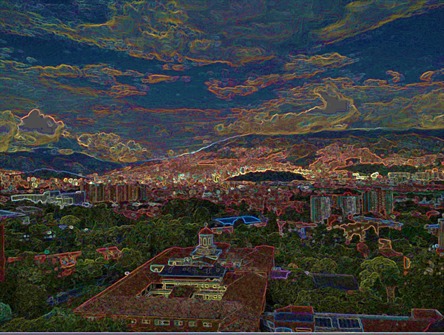This thesis addresses sustainability transitions in the built environment, from buildings to metropolitan scale, ranging from low carbon development to multidimensional challenges currently faced by cities. Emphasis is made on the urban global south, with special focus on Latin America.
The work is structured in four stages. First stage focuses on finding a low carbon path for the building sector, where aprojection of policy scenarios reveals a low carbon path for this sector based on a lifecycle approach. Results show potential synergies between mitigation and adaptation goals and that low carbon measures do not perform equal between industrialized economies in temperate regions and emerging economies in tropical climates, thereby highlighting the importance of science based and context specific policy making.
Second stage addresses current science, policy and practice relative to the sustainable BE, regarding thematic areas, goals and issues set by the New Urban Agenda. Findings show that mainstream scientific research, international certification systems and public policy instruments remain focused on energy efficiency and indoor comfort aspects, while other environmental and social aspects are conferred less importance.
Third stage analyses the potential role of the built environment in fulfilling goals, targets and issues of the post 2015 UN Agenda, comprised by the Sustainable Development Goals, the Paris Agreement, the Sendai Framework and the New Urban Agenda. Links between subjects, goals, targets, thematic areas and issues of these four major multilateral agreements were analysed. Findings show a potential for integrative framework of the global agenda, useful for guiding directions towards urban sustainability transitions.
Fourth stage addresses urban transformative change by assembling perspectives on sustainability transitions. An exploratory method was used here to 1) link analytic perspectives on sustainability transitions, thereby allowing to produce an integrative conceptual model of the built environment as a socio-technical-institutional-economic-ecologic system; 2) linking transition management perspectives in the Urban Transformative Capacity framework (Wolfram, 2016) and 3) connecting both the conceptual model and the managing framework with the UN agenda, in order to provide elements for issuing and navigating transformative urban policies.
The PhD is in collaboration with the UNESCO Chair of Sustainability at the Polytechnic University of Catalunya
